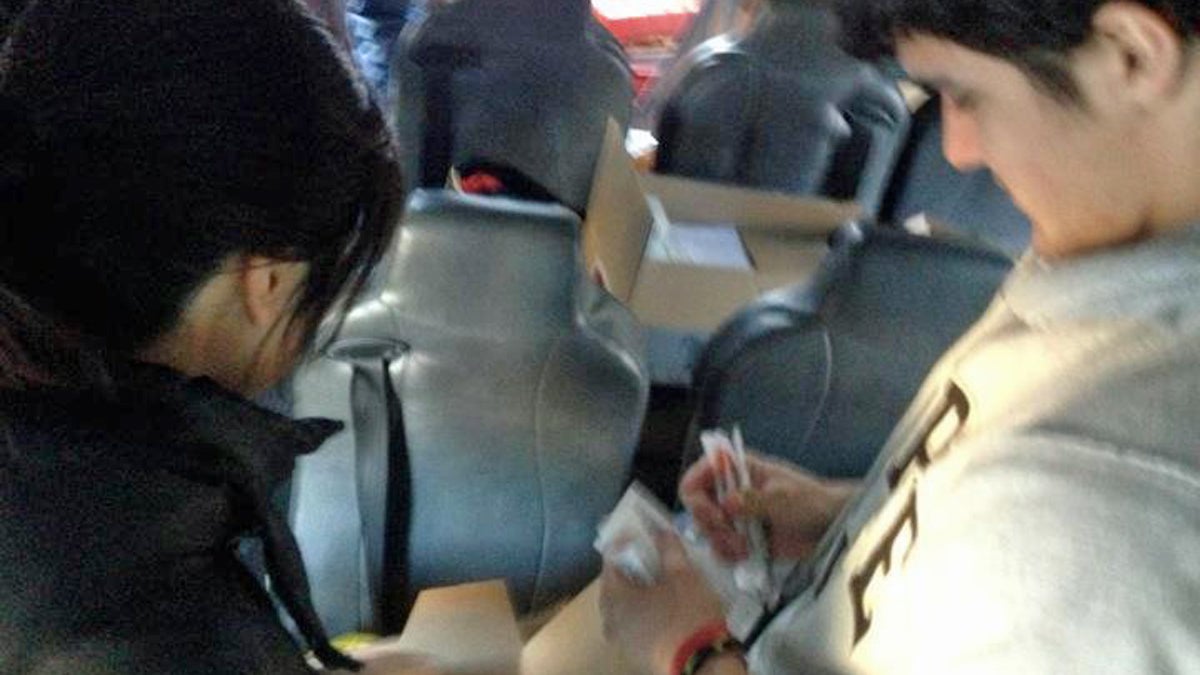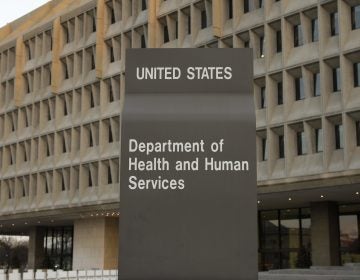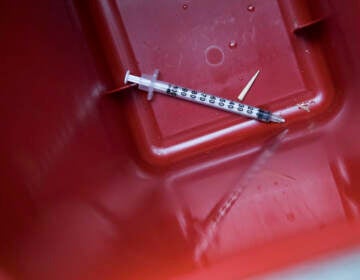Harm reduction leaders call on Gov. Wolf to make needle exchanges legal in Pa.
In the wake of the emergency declaration, harm reduction leaders are calling on Gov. Wolf to make needle exchanges legal in Pennsylvania.

New Jersey and Delaware have state-supported needle exchange programs to cut down on the transmission of diseases. (WHYY, file)
Harm reduction leaders are disappointed with Governor Wolf’s “disaster emergency” declaration earlier this week, which was made in response to Pennsylvania’s growing opioid addiction crisis. That’s because while the declaration allows the state to override existing regulations and outlines plans for things like better naloxone distribution and access to treatment on demand, it makes no mention of harm reduction initiatives like syringe exchanges, which are currently illegal in the state.
“We’re the ones reaching the most vulnerable people who are out there for overdoses, we’re also the folks that refer on a regular basis to treatment programs,” said Jose Benitez, director of Philadelphia’s syringe exchange, Prevention Point Philadelphia.
Exchanges are places where people who use drugs can exchange dirty needles for clean ones. They’re a critical public health intervention, according to Benitez, and first lines of defense against serious diseases like HIV, hepatitis, and other soft tissue infections. He says Prevention Point has helped cut HIV infections among drug users in Philadelphia from 50 percent down to 5 percent.
Yet exchanges are only sanctioned in Philadelphia and Pittsburgh, thanks to specific local ordinances. Mayor Ed Rendell made it legal in Philadelphia 25 years ago, during the AIDS crisis. But elsewhere, needles can be considered drug paraphernalia, so someone could be arrested for possessing them if police believe they’re being used for illicit drugs.
States like Indiana and neighboring New Jersey, meanwhile, have made exchanges legal through emergency declarations.
Aaron Arnold, director of Prevention Point Pittsburgh, says areas outside Philadelphia and Pittsburgh really suffer as a result of exchanges being illegal: just a handful of exchanges exist underground on shoestring budgets, and operate in fear of getting closed down.
“Participants feel like they’re not protected when they try to participate in the program, and they [the underground exchanges] also face the lack of funding, the lack of resources to actually implement the services and the programs in the way they should be,” Aaron said. “And for many people [who run exchanges] in rural areas, they may live in a small town with small social networks, so for them, they’re putting themselves at great risk of running afoul of law enforcement in those places even though they are carrying on a public health service that is saving lives and reducing infectious disease incidents.”
He knows of many places around the state that are ready to start harm reduction programs who feel they can’t do it because they don’t have explicit authorization to do so. Local support may also be tricky. Such interventions have historically been controversial in many places, mired in politics and the stigma related to drug use.
“For people living in those areas, worst of all they can’t access sterile syringes and so they’re putting themselves at risk of infectious disease and other blood borne infections and soft tissue injuries every time they have to reuse or share injection equipment during their process,” he said. “This [needle exchanges] should have been first and foremost at the heart and soul of this declaration.”
Unlike Philadelphia, which provides city funding for its exchange, Pittsburgh’s exchange also does not get any public funding because of state law. Benitez adds that Philadelphia’s would benefit from more support, having doubled its exchange in recent years. It distributed 2.1 million needles last year.
But while he’s disappointed the governor’s declaration doesn’t explicitly address needle exchanges or safe injection sites — something that Philadelphia is currently seriously considering — he’s hopeful the declaration could pave the way for more overt support in the future.
“We were grateful to see attention paid to this issue,” Benitez said, of the declaration and the statewide crisis.
WHYY is your source for fact-based, in-depth journalism and information. As a nonprofit organization, we rely on financial support from readers like you. Please give today.




